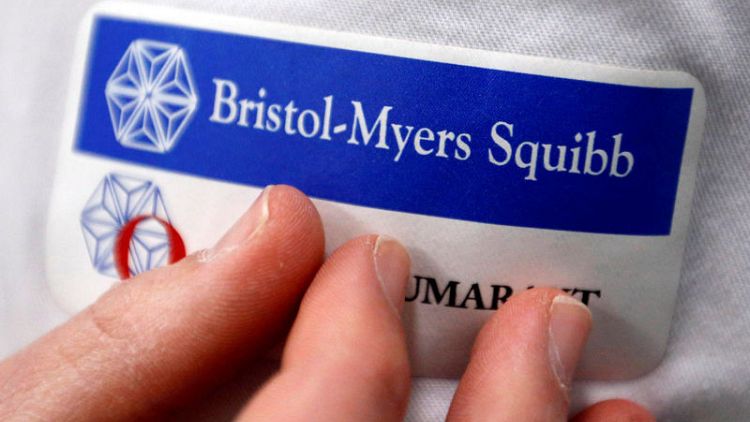By Michael Erman and Svea Herbst-Bayliss
(Reuters) - Bristol-Myers Squibb Co's top shareholder Wellington Management said on Wednesday that it does not support the U.S. drugmaker's $74 billion (56 billion pounds) purchase of biotech Celgene Corp, imperilling what would be the largest pharmaceutical company takeover of all time.
Wellington Management, which owns about 8 percent of Bristol-Myers shares, said they believe the deal is too risky and too expensive, and that alternative options to create value for shareholders "could be more attractive."
Celgene shares fell 8.5 percent after the Wellington statement was released, while Bristol-Myers shares rose 3 percent.
Bristol-Myers said in January that it would buy New Jersey-based Celgene, combining two of the world's largest cancer therapy businesses, with Bristol acquiring Celgene's cash cow Revlimid, one of the world's top-selling blood cancer drugs.
The company said in a statement that its board and management have had "numerous conversations and meetings" with investors, including Wellington, since announcing the Celgene deal. "We believe that we are acquiring Celgene at an attractive price, and that this transaction presents an important and unique opportunity to create sustainable value," Bristol-Myers said.
Celgene declined to comment.
Boston-based Wellington Management rarely makes its views public, which has suggested to analysts that Wednesday’s statement against the proposed deal is both highly unusual and very noteworthy.
In addition to its concerns about the price, the Wellington statement said successful execution of the deal could be more difficult to achieve than depicted by company management.
Following Wellington's announcement, the spread between Celgene’s share price and the value of Bristol’s bid for Celgene nearly doubled in after-the-bell trading to around 20 percent, indicating increased scepticism that the deal will get done.
The Wellington statement comes a week after Bristol-Myers said that activist hedge fund Starboard Value LP intends to nominate five directors to the Bristol-Myers board.
Reuters reported in February that Starboard was working with a proxy solicitor to gauge the level of support among Bristol-Myers shareholders for the Celgene deal. If it finds enough discontent, Starboard could agitate against it.
(Reporting by Michael Erman and Svea Herbst in New York; Additional reporting by Ankur Banerjee in Bengaluru; Editing by Sriraj Kalluvila and Bill Berkrot)



